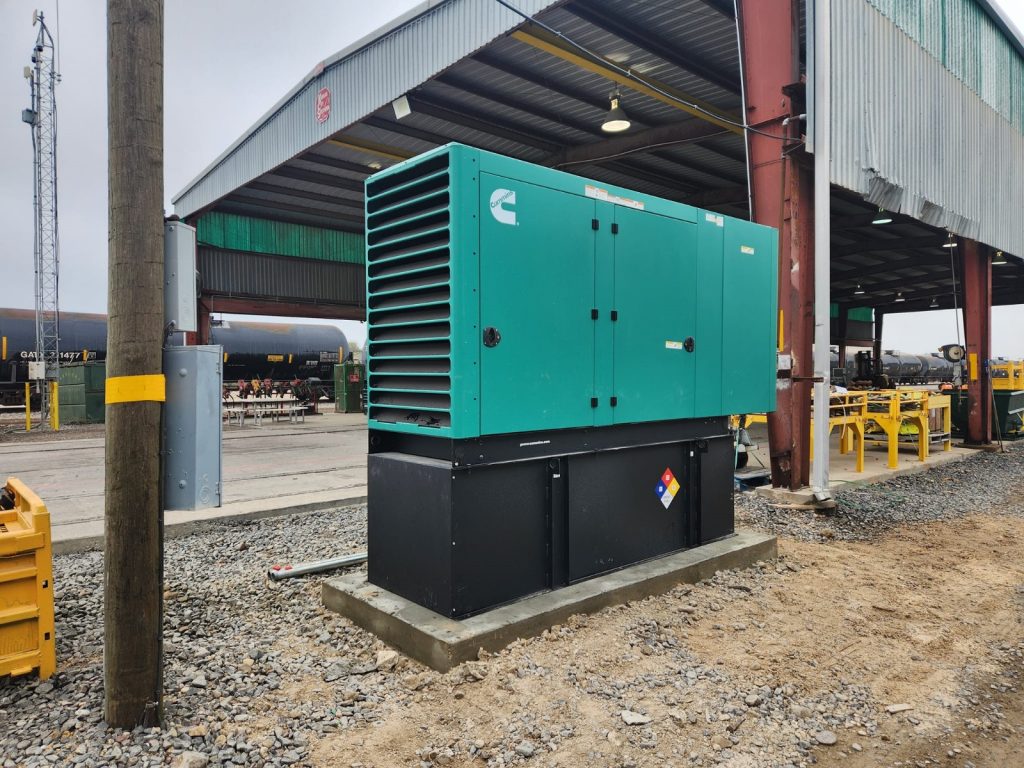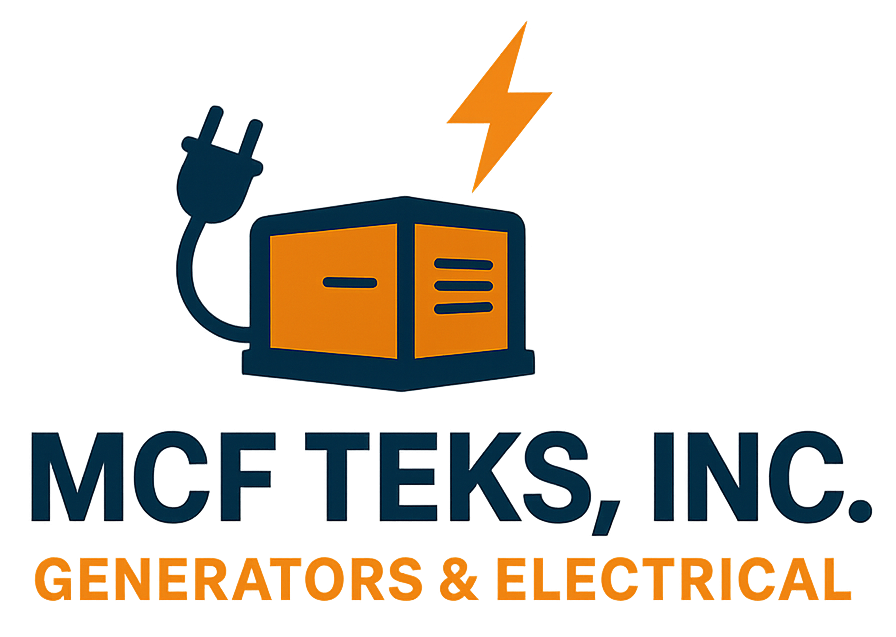Choosing the perfect generator size for your home
Selecting the appropriate generator size for your home is vital to maintaining power during outages. Understanding your energy needs and the various generator types simplifies this process. For residents in Austin, getting expert help with your Austin generator installation can make this task even easier. Professional assistance ensures you choose the right generator and have it installed correctly, providing reliable power when you need it most. This way, your home remains comfortable and functional, even during unexpected power interruptions.

Understanding Your Power Needs
Your home’s power needs depend on various factors, such as the number of appliances you want to run during an outage and their individual wattage. Knowing these details is the first step toward selecting the right generator. By clearly understanding what devices are essential during a power outage, you can avoid both underestimating and overloading your generator.
Calculating Total Wattage
To determine your power requirements, make a list of all the essential appliances and their respective wattages. For instance, a refrigerator may use around 700 watts, while a microwave might consume about 1000 watts. You can find this information on appliance labels or in their manuals. By adding up the wattages, you’ll get an estimate of the total power your generator needs to supply. This total wattage is crucial in guiding your choice of generator size.
Considering Surge Wattage
Some appliances draw additional power when starting up, known as surge wattage. For example, an air conditioner may need 2000 watts to start, even though it only requires 1500 watts to run. Failing to account for these surges can result in generator overload. Always include surge wattage in your calculations by referring to the user manual or product specifications. Factoring in this extra power demand ensures your generator can handle brief power spikes without shutting down or getting damaged.
Types of Generators
Generators come in different types, each designed to meet specific needs and environments. Choosing the right type not only ensures reliable performance but also improves efficiency and cost-effectiveness in the long run.
Portable Generators
Portable generators are ideal for short-term use and emergency situations. They are easy to move, operate on gasoline, and are perfect for powering essential appliances like lights, refrigerators, and fans. These generators are great for camping trips or temporary power outages. However, they require manual setup, frequent refueling, and regular maintenance. While not suited for whole-home backup, they provide a convenient and affordable solution for basic power needs.
Standby Generators
Standby generators are permanently installed units that automatically start during a power outage. They run on natural gas or propane and are directly connected to your home’s electrical system. These generators offer seamless power transition and require very little manual intervention once installed. They are ideal for homeowners who need uninterrupted power, especially those with sensitive medical equipment or home offices. Although the initial investment is higher, their long-term reliability and convenience make them a smart choice for complete home backup.
Fuel Type and Efficiency
The efficiency and overall cost of operating a generator largely depend on the type of fuel it uses. Different fuel types come with their own advantages and limitations, and the right choice depends on your usage pattern and availability.
Gasoline Generators
Gasoline-powered generators are widely available and easy to refuel, making them popular for emergency use. They are well-suited for short power outages and are often more affordable initially. However, gasoline has a limited shelf life, can be difficult to store safely, and may be hard to obtain during large-scale outages. These generators also tend to be noisier and require more frequent servicing compared to other types.
Propane and Natural Gas Generators
Generators that run on propane or natural gas offer greater efficiency and cleaner operation. They are ideal for long-term use, especially in areas prone to frequent or prolonged power outages. These fuel sources have a longer shelf life and are generally more environmentally friendly. Natural gas generators can be connected to your home’s gas line for an uninterrupted fuel supply, while propane can be stored in large tanks. These units are quieter, require less maintenance, and offer a more stable performance compared to gasoline generators.
Installation and Maintenance
Proper installation and ongoing maintenance are key to ensuring your generator performs reliably when you need it the most. Investing in these areas not only extends the life of your unit but also enhances safety and performance.
Professional Installation
Having your generator professionally installed ensures that all electrical connections and safety protocols are correctly handled. Certified technicians understand how to meet local codes and integrate your generator with your home’s electrical system. This reduces the risk of malfunctions, electrical hazards, and system incompatibility. With professional installation, you can be confident that your generator is ready to operate efficiently and safely during any power outage.
Regular Maintenance
Routine maintenance is essential for keeping your generator in optimal working condition. This includes checking and changing oil, inspecting fuel lines, replacing filters, and testing the system regularly. Scheduled inspections help identify small issues before they become serious problems. Especially before storm seasons or expected outages, maintenance ensures your generator is ready to provide uninterrupted power. A well-maintained generator lasts longer and performs more reliably over time.
Budget and Cost Considerations
When choosing a generator, it’s important to evaluate both the initial investment and the ongoing operating costs. Making a well-informed financial decision ensures you get the most value from your purchase.
Initial Purchase Costs
The upfront cost of a generator varies depending on its capacity, brand, and features. Portable generators are usually more affordable, while standby generators can be significantly more expensive due to their size and automatic functionality. Additional costs include installation fees, transfer switches, fuel storage solutions, and required permits. Planning for these costs in advance helps you stay within budget and prevents unexpected expenses during installation.
Operating Costs
Long-term costs include fuel expenses, regular maintenance, and occasional repairs. Fuel prices can fluctuate, and availability may vary depending on your location and the type of fuel you choose. Regular servicing, such as oil changes and filter replacements, keeps your generator running efficiently but adds to the total cost of ownership. Setting aside a small budget for unexpected repairs is also wise. Understanding these ongoing costs helps you manage your generator’s performance and affordability over time.
Ensuring Reliable Power for Your Home
Choosing the right generator for your home becomes a straightforward process when you’re equipped with the right information. By understanding your energy requirements, selecting the appropriate generator type, and considering installation and maintenance, you ensure reliable backup power whenever needed. Whether you choose a portable or standby generator, Maxgen Power is here to provide expert guidance and dependable solutions that keep your home powered and your family comfortable.
Need help finding the perfect generator?
Contact Maxgen Power for professional generator installation, maintenance, and support. Our experts are ready to help you choose the best generator for your needs and budget.
🌐 Visit https://maxgenpower.net today for more information or to request a consultation.


